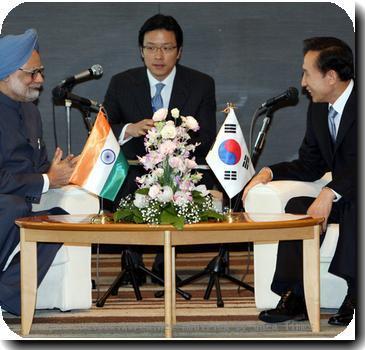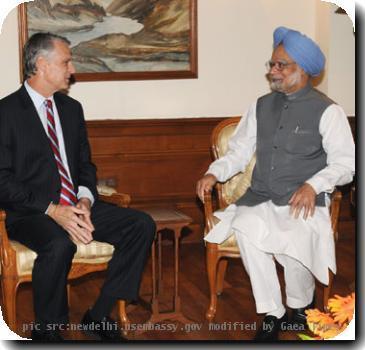Pakistan Supreme Court sets Saeed free, India disappointed (Second Lead)
By IANSTuesday, May 25, 2010
ISLAMABAD/NEW DELHI - The Thimphu thaw showed its first signs of strain Tuesday when Pakistan’s Supreme Court set free from house arrest Hafiz Saeed, who India says masterminded the Mumbai carnage, citing lack of evidence. New Delhi voiced disappointment and asked Islamabad to take “meaningful action against such elements”.
Pakistan’s Supreme Court Tuesday dismissed the appeals by the federal and Punjab provincial governments against a Lahore High Court order, freeing Saeed from house arrest on grounds of “insufficient evidence”.
When the matter came up for hearing Tuesday, a three-judge bench headed by Justice Nasir-ul-Mulk heard the case.
A. K. Dogar, a defense lawyer, said the court ruled that the government had failed to produce any evidence that Saeed, Lashkar-e-Taiba (LeT) founder, played a role in the attacks in Mumbai that killed 166 people.
The judges said in their remarks that no citizen could be deprived of his freedom on presumptions as no solid proof was presented regarding Saeed’s links with Al Qaeda or his involvement in Mumbai attacks.
The Lahore High Court had overturned Saeed’s arrest in June 2009, saying the evidence against him was insufficient.
The federal and Punjab provincial governments had appealed against this but the Supreme Court had indefinitely put off hearing them.
India was quick to convey its concerns and saw in it as a setback to the Thimphu spirit of bridging trust deficit that emerged after the meeting between Prime Minister Manmohan Singh and his Pakistani counterpart Yousuf Raza Gilani in Thimphu last month on the sidelines of the SAARC summit.
“There is a sense of disappointment. Everybody in India feels this disappointment,” Foreign Secretary Nirupama Rao told reporters in New Delhi. “We regard Saeed as one of the masterminds of the Mumbai attacks. He has openly declared jihad against India,” Rao said.
“Enough evidence has been given by India,” Rao said while referring to detailed evidence against the anti-India ideologue provided to Pakistan during the Feb 25 foreign secretary-level talks.
“We hope Pakistan will be sensitive to our concerns and take meaningful action against such elements,” she said.
India had pressed for “concrete action” against Saeed yet again when Manmohan Singh met Gilani in Thimphu last month.
“PM (Manmohan Singh) mentioned deep concern about Hafiz Saeed and the way he is allowed to roam free and engage in communication not conducive (to the relationship between India and Pakistan),” Rao had said after that crucial meeting.
Gilani, on his part, “did mention that they have difficulties in their legal system” to prosecute Saeed.
Despite India’s repeated calls for action, the release of Saeed is set to cast a shadow on the meeting between External Affairs Minister S.M. Krishna and his Pakistani counterpart Shah Mehmood Qureshi in Islamabad July 15. The two foreign ministers have been mandated by their leaders to meet and work out the modalities of restoring trust between the two countries.
Saeed, who had declared a jehad against India in February, was placed under house arrest in December 2008 after the UN, acting under US and Indian pressure in the wake of the Mumbai assault, proscribed the Jamaat-ud Dawa (JuD), an Islamic charity that the LeT had morphed into after the Dec 13, 2001 attack on the Indian parliament.

